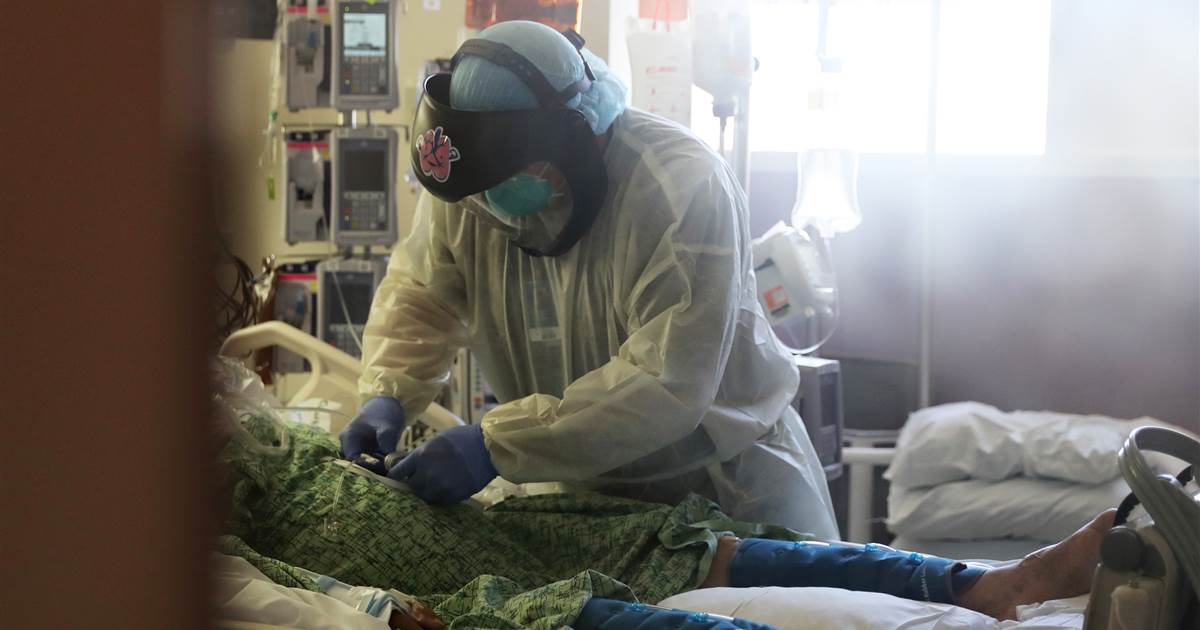Neurological signs are incredibly common among Covid-19 patients sick enough to be hospitalized, a research study released Monday finds.The symptoms vary from mild to extreme, and can include headaches, lightheadedness and transformed brain function, according to the research study in the journal Annals of Translational and clinical Neurology.Full protection of the coronavirus outbreakThe findings highlight the wide-ranging effects the infection can have on the body. Whats more, the study found that clients might continue to experience these signs long after they recover from the disease.The news comes as President Donald Trump was anticipated to leave Walter Reed National Military Medical Center after being hospitalized for 3 days. “That suggests 4 out of 5 hospitalized clients in our healthcare facility system at the start of the pandemic had those neurologic problems,” stated Dr. Igor Koralnik, a co-author of the study and chief of neuro-infectious illness and international neurology at Northwestern Medicine.Muscle pain was reported by almost 44.8 percent of patients, and 37.7 percent grumbled of headaches.Just under a third of patients established a more serious type of neurological issue: encephalopathy, or altered brain function.Problems ranged from mild signs, such as trouble with attention, short-term memory, concentration and multitasking abilities, “all the method to confusion, stupor and coma,” Koralnik stated. Forty-two percent of the patients in the research study had neurological issues when they initially got sick.Indeed, Koralnik said such problems could be the very first indications of a coronavirus infection.
Neurological symptoms are exceptionally common amongst Covid-19 clients ill enough to be hospitalized, a study released Monday finds.The signs vary from mild to extreme, and can include headaches, dizziness and transformed brain function, according to the research study in the journal Annals of Clinical and Translational Neurology.Full coverage of the coronavirus outbreakThe findings highlight the wide-ranging results the virus can have on the body. Whats more, the study discovered that clients might continue to experience these symptoms long after they recuperate from the disease.The news comes as President Donald Trump was expected to leave Walter Reed National Military Medical Center after being hospitalized for three days. His physicians have actually made no sign that the president has actually experienced any significant neurological symptoms.In the research study, scientists at Northwestern Medicine recalled at the first 509 clients hospitalized within their network of 10 hospitals and medical centers in Chicago in March and April. Just over a quarter had been put on ventilators.A majority of 509 clients– 82 percent– developed issues originating from the anxious system. “That implies 4 out of 5 hospitalized clients in our medical facility system at the start of the pandemic had those neurologic issues,” stated Dr. Igor Koralnik, a co-author of the study and chief of neuro-infectious diseases and international neurology at Northwestern Medicine.Muscle discomfort was reported by nearly 44.8 percent of clients, and 37.7 percent experienced headaches.Just under a 3rd of clients developed a more severe kind of neurological issue: encephalopathy, or modified brain function.Problems varied from mild symptoms, such as trouble with attention, short-term memory, concentration and multitasking capabilities, “all the way to confusion, stupor and coma,” Koralnik said. More extreme brain function issues were more likely to occur in older clients over 65. Others reported sensation lightheaded, or lost their sense of taste or smell.” This verifies that neurological manifestations prevail, but typically moderate. That is very important,” Dr. Alejandro Rabinstein, a neurologist at the Mayo Clinic, stated. “Many clients in the health center with Covid will have muscle pains, will have loss of odor and taste. Those are reversible, and benign.” Rabinstein was not included with the brand-new study.RelatedIt appears the symptoms were not an outcome of being hospitalized, which can happen after clients are dealt with in intensive care systems, but rather the virus itself. Forty-two percent of the patients in the research study had neurological problems when they first got sick.Indeed, Koralnik stated such issues could be the first indications of a coronavirus infection. People who all of an abrupt can not smell, without explanation, “should consider that as an indication of early Covid-19.”” They ought to be evaluated more quickly and quarantine and trace their contacts to prevent further spread” of the virus,” he added.Download the NBC News app for breaking news about the presidents healthFuture research studies of hospitalized Covid-19 clients might reveal various influence on the nervous system. This research study concentrated on clients confessed to the health center at the beginning of the pandemic, typically in devoted Covid-19 wards without wide access to brain imaging. Whats more, less than 6 percent of the clients in this research study were seen by neurologists or neurosurgeons.” Only 9 months into the pandemic,” the study authors composed, “the long‐term effects of Covid‐19 on the nerve system remain unsure.” Also unknown are the long-term effects of these symptoms. Koralnik and his coworkers will continue to follow patients after they get out of the health center, consisting of so-called long-haulers, who continue to experience symptoms, such as brain, fatigue and fever fog, months after recuperating from the infection.” It is essential that individuals realize the magnitude of these issues,” Koralnik, who likewise supervises the Northwestern Medicine Neuro Covid-19 research group, said. “We require to continue to do more research study to try to discover out why this is occurring, specifically the brain fog.” Follow NBC HEALTH on Twitter & & Facebook.Erika EdwardsErika Edwards is a health and medical news author and press reporter for NBC News and “TODAY.”.

